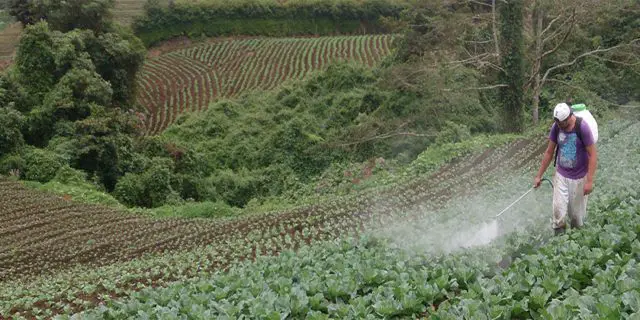The State Phytosanitary Service (SFE) controls and regulates the commercial exchange of agricultural products in both import and export, the registration, control and regulation of chemical and biological substances for agricultural use (pesticides, fertilizers, biological substances and other related products), its quality control and maximum permitted residue levels (MRLs) of pesticides in fresh consumption products, certifies the phytosanitary status of products for export, maintains surveillance and control of pests of economic importance and those pests not present in the country that may represent a potential threat to national agricultural production.

Due to the arrival of the dry season and the rise in temperature, in Costa Rica, an increase in pests is expected in crops such as melon, watermelon, squash, chili, tomato, beans, and cucumbers, among others. Authorities of the Ministry of Agriculture and Livestock (MAG) informed that the climatic conditions foreseen for the coming months are associated with the phenomenon of El Niño-Southern Oscillation.
The State Phytosanitary System (SFE) of the Ministry of Agriculture and Livestock (MAG) is monitoring areas such as the Central Pacific and the Chorotega Region, before the possible increase of pests for the dry season. It is expected an increase in temperature and a decrease in rainfall in these areas of the country, as a consequence of the dry season that will be associated with the phenomenon of El Niño-Southern Oscillation (ENSO).

According to previous experiences, in cases of drought in the Central and North Pacific, there have been problems with the increase of the field rat and flying lobster that affect a wide variety of crops. In addition, insect pests increase in crops such as melon and watermelon, which are attacked mainly by thrips, aphids, and whiteflies. Also, the populations of the psyllid Diaphorina citri, Huanglongbing vector, a disease known as citrus HLB or yellow dragon, could be increased.
To support these efforts, the SFE began a process of training producers, together with other entities of the agricultural sector and private enterprise, to warn them about the possible consequences of the drought and preventive actions, according to Fernando Araya, director of the entity.
The Costa Rican authorities reported that they have modernized the system of phytosanitary certificates, in order to streamline export procedures and reduce costs. The MAG and the SFE explained that Costa Rica began the implementation of the digitized electronic signature for phytosanitary certificates that accompany plant products for export.
This, according to the authorities, allows simplifying procedures, by reducing time and costs, since exporters will no longer have to travel to the headquarters of state entities to collect the signed physical certificates. “Countries like the United States and Honduras are already implementing this method, Mexico is in that process, we are starting after a great effort to correctly implement it”, said in a statement the head of the Phytosanitary Certification Department of SFE, Gina Monteverde.
The system also allows that with the number of the phytosanitary certificate the countries can corroborate if the document was issued by the SFE and check the list of officials with their signatures authorized to approve them. Costa Rica issues about 100,000 such certificates per year, according to official data.
Gina Monteverde, in charge of the Department of Phytosanitary Certification, of the State Phytosanitary Service (SFE) noted that “every year we generated more than 100,000 phytosanitary certificates, which have to be physically signed by SFE officials and users channel through “Ventanilla Única” or Phytosanitary Control Stations to collect the certificates issued”.
“With the digitized electronic signature the process is streamlined and the exporter will not have to move from place to place on the certificate, which simplifies the process and reduces the time and costs, both for the institution and for the exporters”, she added.
This work is done together with the Ministry of Foreign Trade (Comex) and the Procomer Single Window. According to Monteverde, they will be gradually adjusting to the new system. There have been some minor inconveniences in the countries of destination because they have not been sent the notification that Costa Rica made to the World Trade Organization (WTO). With the phytosanitary certificate number, the countries will be able to corroborate if this was issued by the SFE and check the list of officials with their authorized signatures of approval, improving the efficiency and the merchandise release process.

